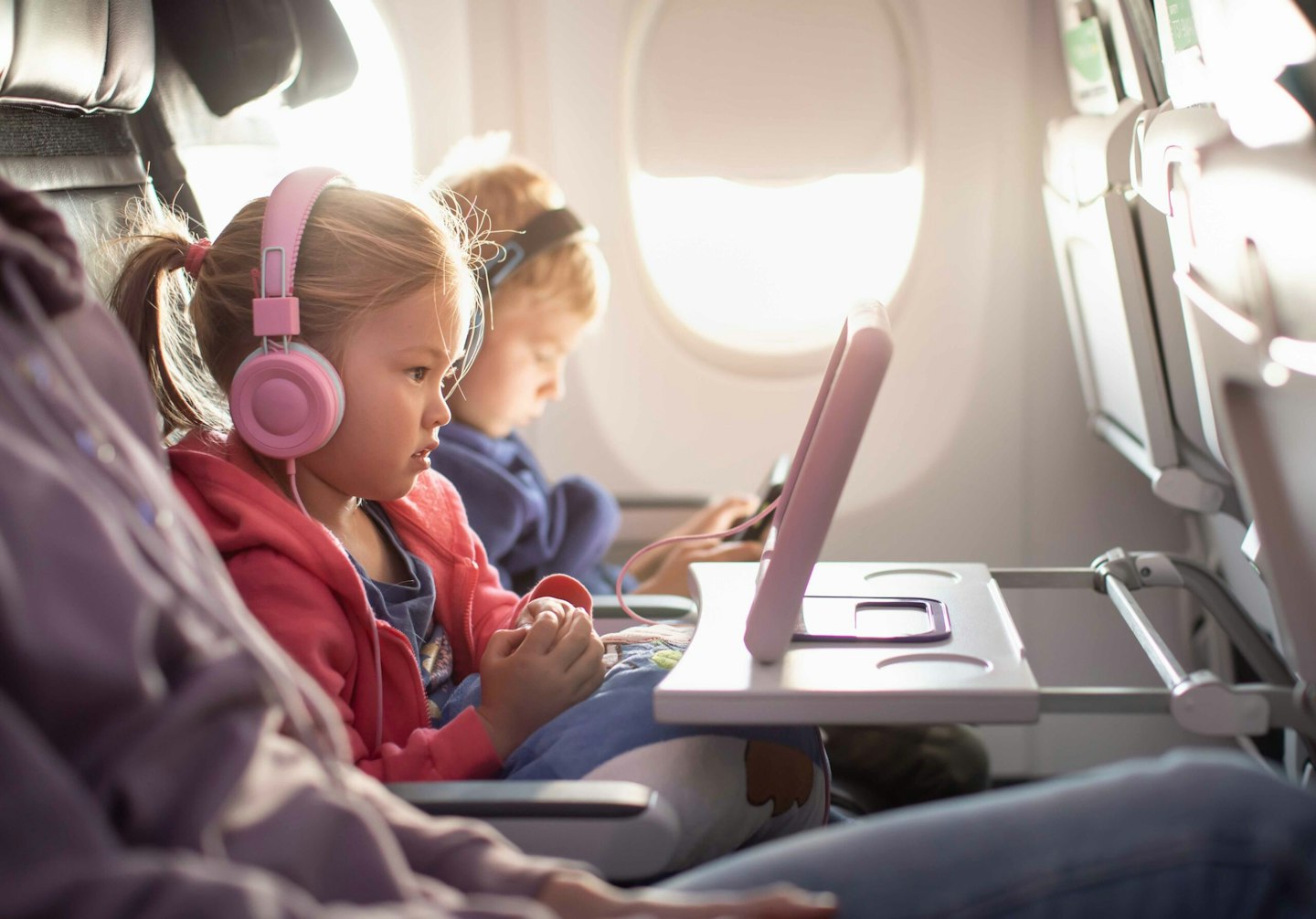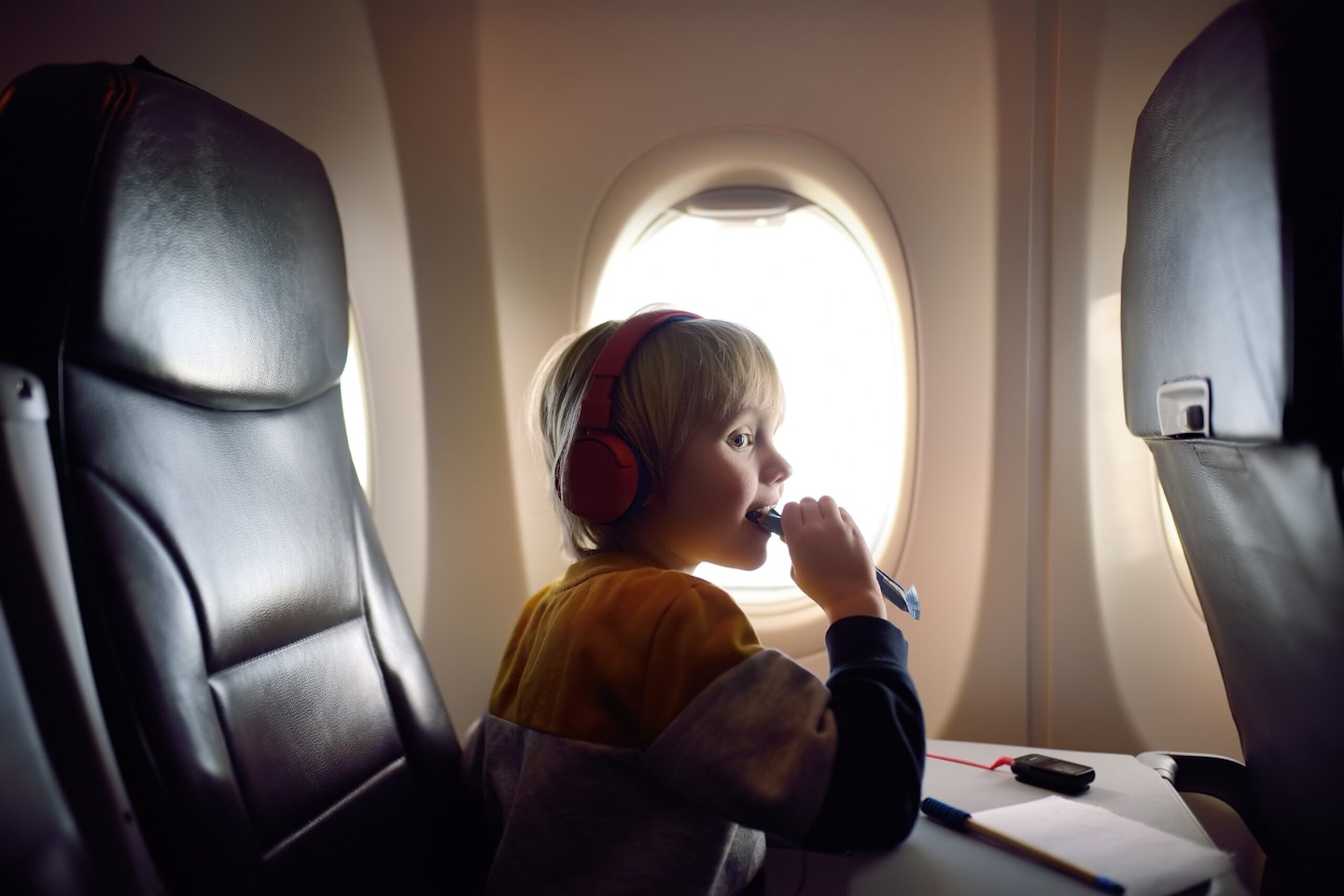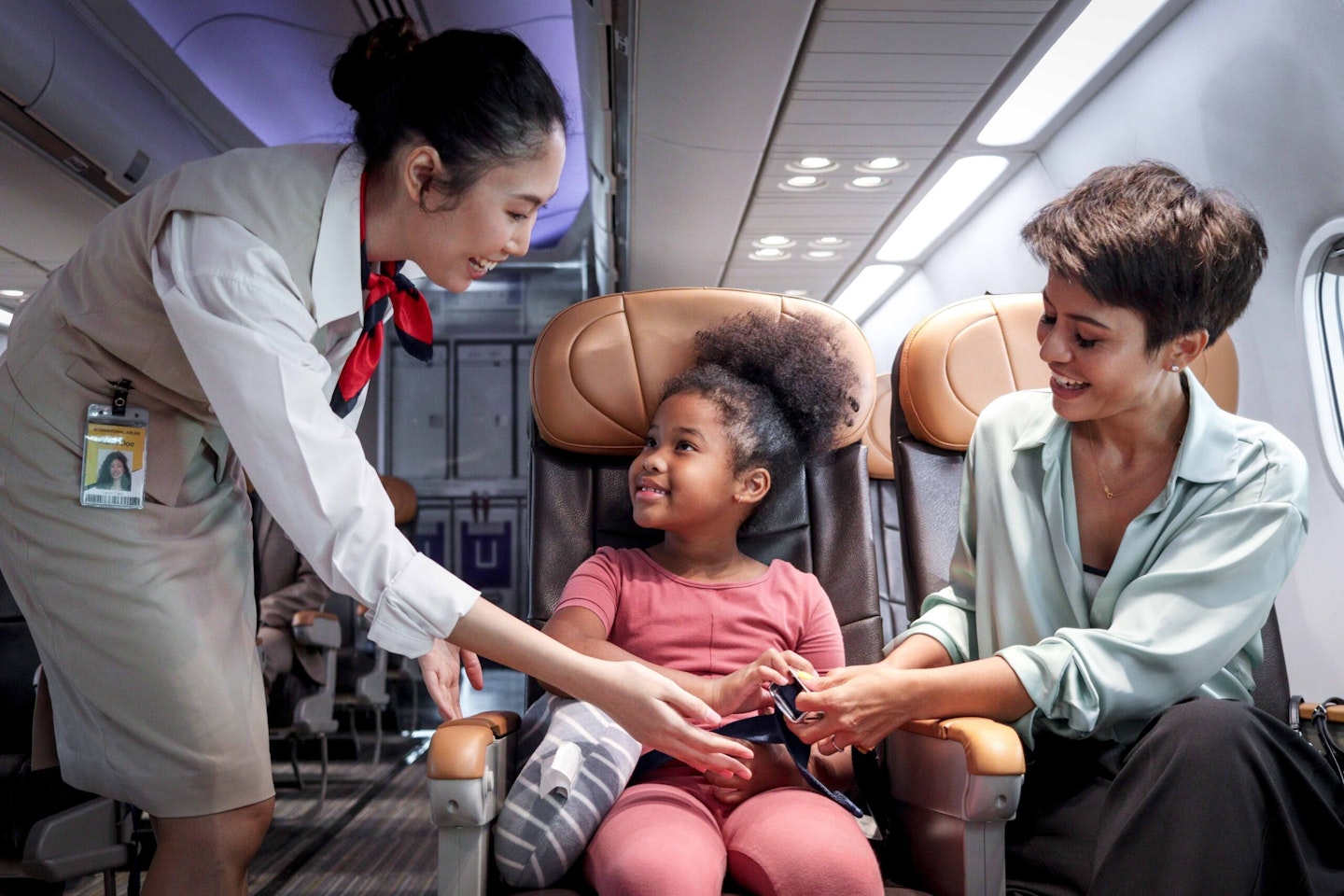While going on holiday may be one of the most exciting times of the year, for many parents, it can be one of the most stressful times. New research from Amazon’s Chatterbox series reveals 78% of Brits admit the thought of going on holiday brings more pleasure than anything else, but almost one in three parents have opted to avoid flying altogether, with 34% saying keeping kids entertained on flights as the biggest issue. But child behavioural expert Elizabeth O’Shea says it needn’t be that way and that parents just need to be more prepared. Here, Elizabeth gives her top tips to making travel stress free.
Always plan ahead
“It depends on the age of the child, but the most important thing is to actually thoroughly plan ahead. Most parents get to the airport and they haven't thought everything through - so they've got lots of equipment, but they haven't thought about the child's experience. For example, for babies, it's just as simple as having a bottle or something to suck, particularly when the altitude reaches the stage where people's ears pop. A child needs to swallow or otherwise it can get very painful. Babies can also get very fractious on flights. So sometimes a small amount of lavender oil, even on your neck, can help when you're cuddling them.”

Prepare your little one(s)
“The ones that are hardest to travel with are usually toddlers. A few years ago, I gave some advice to a parent and they actually emailed me from their holiday to say that they were absolutely amazed that this had worked for their very active four-year-old.
“I had said for them to set up a pretend aeroplane before they flew, make signs, and get some belts and teach their child how to sit with the seatbelt on. Children need to picture what is going to happen, so show them what a plane looks like, what you do in an airport and just talk them through the stages. Then keep talking to the child, and ask them questions like, “Can you remember what to do when the seatbelt sign lights up?”, and “Can you remember what the different things are we're going to do when we get to the airport?” - and they will be able to picture what is happening and be more familiar with the process.”
Take snacks and entertainment
“Obviously children need feeding regularly, and it’s a good idea to take double the amount of snacks and buy some drinks, so that if delays happen, you’re ready. It’s also really useful for parents to have sweets or a drink their children can suck to help with altitude, as this helps equalise the air pressure behind their ear drums. Children are much less likely to get upset or irritable if they feel comfortable and are not in any pain.

"34% of Amazon’s Chatterbox respondents say keeping kids entertained throughout the flight is their biggest worry when travelling with a child. It’s really useful to have a bag ready with toys and activities - you just have to be quite clever and make everything as miniature as possible. For shorter flights, parents can produce something new every 10 minutes or so, to keep the child entertained. These could be things like miniature figures, pencils and a colouring book, a comic, or a magnetic toy - and can be as simple as getting little bits and pieces from the pound shop. Smartphones and tablets can also come in very handy - and a lot of children are quite fascinated by the in-flight entertainment on a long-haul flight. For older children, treat them to a new magazine or book, and it can be a nice idea to get some travel games such as a pack of cards, to play with them and pass the time.”
The flight attendants are your friends
“12% of those asked in the Chatterbox series say their child has previously cried for an entire flight - and flight attendants are normally lovely, and will try to help you out if you've got a child that’s crying, and perhaps give you some respite. If a child is really irritable, you can also take them to the back of the plane to do a little bit of exercise like running on the spot, to get rid of some pent up energy without taking up much room.”

Don’t worry about others
“As a parent, I think you just have to develop a thick skin and understand you're there for your child. Flying is stressful at the best of times, and it's very easy to get more and more stressed when you're with a young child and are worried about what other people are thinking. I think the most important thing is just tune into your child. Interestingly, children rely on their parents to help them regulate, so it's important to do this. It can be really hard, but parents should just focus on their child's needs, and try to ignore everything else that's going on around them.”
Comfort is key
“A very important thing is that children should fly in comfortable clothing, especially if it’s a long flight or an overnight one. Changing them mid flight can be a bit of a pallava, so as long as they're in comfortable clothing that's fine. To help with sleep, it can be quite useful to buy a child’s neck pillow, and get them to try it out at home or in the car, so they get used to the idea of sleeping with it. I think the most important thing is that they're comfortable and that you've got everything that they need for them to go to sleep. Also, if you're on a long haul flight, having a comfort blanket that the child is used to can be really nice for them to snuggle.”
Make plans for your holiday
“A lot of children get so excited about flying, but it can also be quite daunting. To help them look beyond the flight itself, it's a nice idea to talk to them about the holiday, so they know what to look forward to and what to expect. Some children really struggle with breaking routine, so building a little timetable so they know what they are going to be doing can be a good idea. This doesn’t have to be strict and can of course include free mornings, afternoons, or days - but can help for them to have some idea of what is going to happen while you are away.”
For the Chatterbox series, Amazon surveyed 75,000 people from all backgrounds across the UK and for more info, click here.
